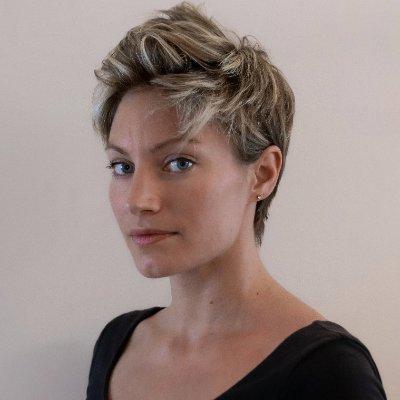International scholars discussed the legal and human rights challenges to improving the state of LGBTQ+ rights as they pertain to international law in a collaborative event among three Georgetown departments.
The women’s and gender studies program, the department of government and Advancing Women’s Empowerment and Service presented the Oct. 4 talk. The conversation featured Erin Kilbride (CAS ’12), LGBT researcher for the Human Rights Watch and women’s and gender Studies visiting professor; and Victor Madrigal-Borloz, United Nations independent expert on sexual orientation and gender identity.
Madrigal-Borloz said the development of LGBTQ+ language in international law is a fairly new development, with major events such as UN sponsored research on global LGBTQ+ violence and discrimination happening as recently as 2016.
“Sexual orientation and gender orientation were absent from all legal instruments internationally,” Madrigal-Borloz said at the event. “That rendered the situation of LGBT and other gender diverse persons really invisible, because the particular impact that their sexual orientation and gender identity would have on their lived realities was never considered because there was no language to consider it.”
Kilbride said that while her career path as a human rights advocate did not originally deal with queerness, many human rights issues are coated in homophobic assumptions and language.
“The same language of ‘you’re deviant, you’re gay, you’re external,’ and we were seeing those binaries being reproduced,” Kilbride said at the event. “Being gay and straight, who belongs and doesn’t belong here, is supporting the nation, is a threat to the nation.”
As many as 65 countries still have criminalization laws in effect for same-sex activities. These laws often deal exclusively with male versus female, erasing the gender spectrum in the process, according to Kilbride.
Kilbride said that as a human rights defender, she is given access to special monetary and status privileges that aid her international work in protecting queer rights.
“Before I knew the words human rights defender, I didn’t know what that meant,” Kilbride said. “You can get colleges to write statements about you, you can get access to money, you can get access to asylum, you can get access to all kinds of other things that normal humans can’t get. There’s a lot of politics bound up in that, but it’s a very useful phrase.”

Human rights defenders seek the promotion and protection of civil and political liberties as well as the promotion, protection and realization of economic, social and cultural rights. Kilbride said that while this work is critical for upholding the protections of marginalized populations, it is fast-paced and focuses on immediate needs rather than structural solutions.
“For many of us, we don’t take a lot of time to slow down and think about how to do this work,” Kilbride said. “We don’t make a lot of time to stop and reflect. This is bound up in so many other issues, which we can tie to maternity issues and vacation time. We constructed this field with an urgency that doesn’t allow for reflection.”
Madrigal-Borloz said that in his work for the UN, barriers to participation and engaging fully in international human rights talks are often tied to gender-based frameworks.
“The current definition of gender identity is really about the ability of persons to exercise freedom to define their relationship with all the expectations and stereotypes and meaning attached to sex,” Madrigal-Borloz said. “The language of injustice, and therefore the corresponding language of rights, has been developed on a binary.”
Madrigal-Borloz added that in his work, parties hostile to queer rights often accused him of trying to normalize issues of queerness. This is one of the tools of discrimination used by state governments, according to Madrigal-Borloz.
“The subtext is I will humiliate you as much as I can and therefore take your power away by making you look gay,” Madrigal-Borloz said.
Kilbride said that though these binary systems can be frustrating, activists do not have to believe in them in order to enact change.
“You don’t have to trust the process in order to engage with it,” Kilbride said. “There are no perfect systems. There are so many more radical human rights defenders who are willing to fix their face, walk into a room and do what needs to be done but have absolutely no support in order to get anywhere even close to the door, let alone a seat at the table for them.”
Madrigal-Borloz said that looking toward the future, hope will be the main driver for community building and queer activism.
“Hope is a very visceral emotion in what we can expect life to throw our way given the experience that we have,” Madrigal-Borloz said. “Hope is something that I see people build by working together, and just tying their wagon to the great energy that comes out from people that are convinced by what they do.”




















